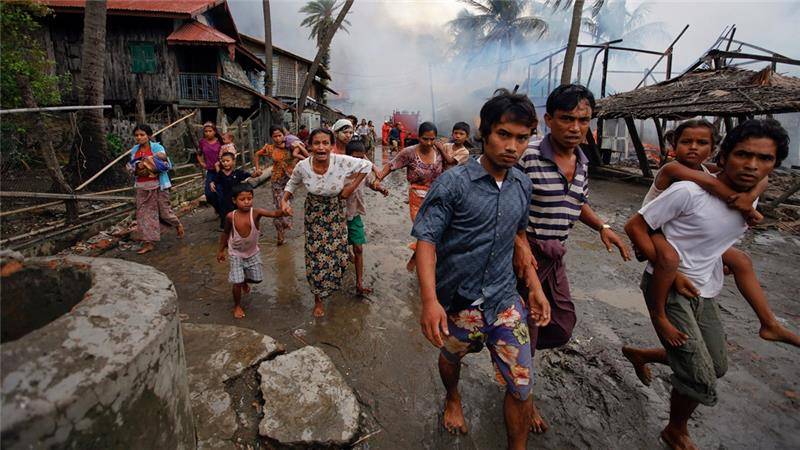COX'S BAZAR: Bangladesh and Myanmar were to hold a border meeting Tuesday on the fate of some 6,000 Rohingya refugees stranded in no man's land between the two countries, officials said.
The 6,000 at first refused to enter Bangladesh in the influx that poured across the border after the Myanmar military launched a crackdown against the Muslim minority last August.
Now they say they are not allowed to enter Bangladesh and the United Nations and aid groups have called on the Dhaka authorities to let them in.
Bangladesh refugee commission chief Mohammad Abul Kalam said a team led by a regional government administrator would meet Myanmar officials to discuss the Rohingya stuck in limbo near the Tombru border point.
Kalam said Myanmar wanted Bangladesh's help to persuade the stranded Rohingya to return to their homeland in Rakhine state.
"We will know what kind of cooperation they want once we reach there," he told AFP.
A Myanmar minister visited the strip of land at Tombru last week.
The minister warned the Rohingya refugees, who live in makeshift settlements, that they will face "consequences" if they do not take up a Myanmar offer to return.
- Fence talks -
A video circulated on social media shows deputy minister for home affairs Aung Soe addressing refugees through a barbed wire fence.
The no man's land Rohingya told AFP they live in fear as the Myanmar army had recently set up bunkers near the fence.
"They tell us that we should leave this place or else they will shoot us," said Rashid Ahmed, 32.
Another Rohingya, Ismail, said some 400 Myanmar soldiers regularly patrol near the border line, creating panic among the refugees. "They often fire blanks," he said.
The stranded Rohingya featured last week in Dhaka talks between home ministers of the two nations. The two decided to send a mission to the border strip on Tuesday.
Kalam said the stranded Rohingya technically live on the Myanmar side of the border and that they had previously refused to take shelter in camps inside Bangladesh.
Some 700,000 Rohingya have fled Myanmar to Bangladesh since the crackdown that the United Nations has called ethnic cleansing.
The two governments have agreed a programme to repatriate the refugees. But the start of the returns has been indefinitely delayed, even though Bangladesh last week handed over a list of 8,032 Rohingya to Myanmar for repatriation.
Many Rohingya say they do not want to return until Myanmar agrees to give them citizenship and guarantees their safety.
Myanmar regards the Rohingya as migrants from Bangladesh and denies them citizenship, even though they have been there for generations.
A UN refugee agency spokeswoman, Caroline Gluck, told AFP that any return decision must be voluntary.
"Some members of this group in no man's land have said they fear returning home and wish to seek safety in Bangladesh," Gluck said.
"We appeal to the Bangladeshi authorities to allow them to do so. At the same time, Myanmar should ensure conducive conditions for the safe and sustainable return of those who wish to do so voluntarily."






